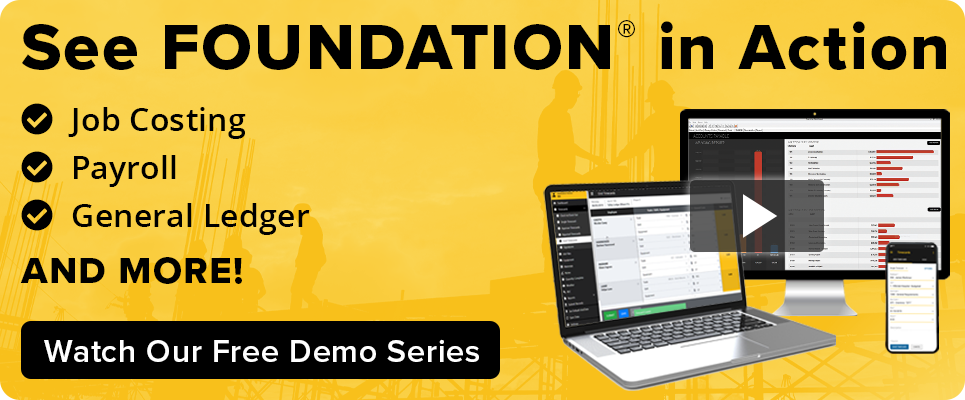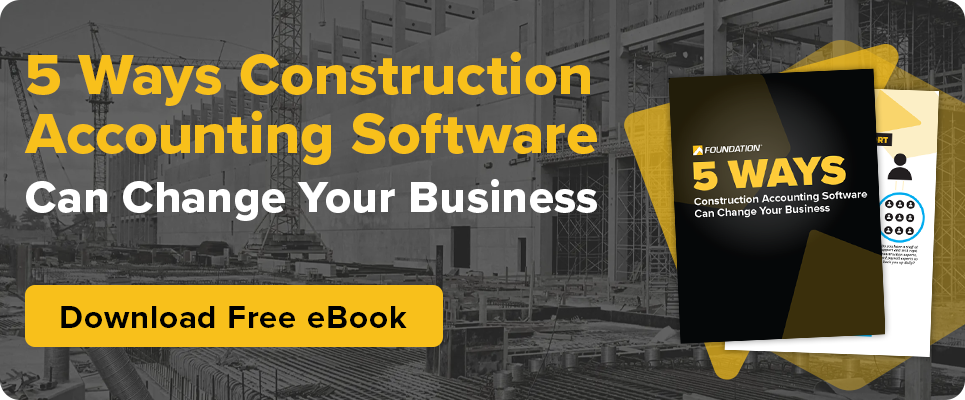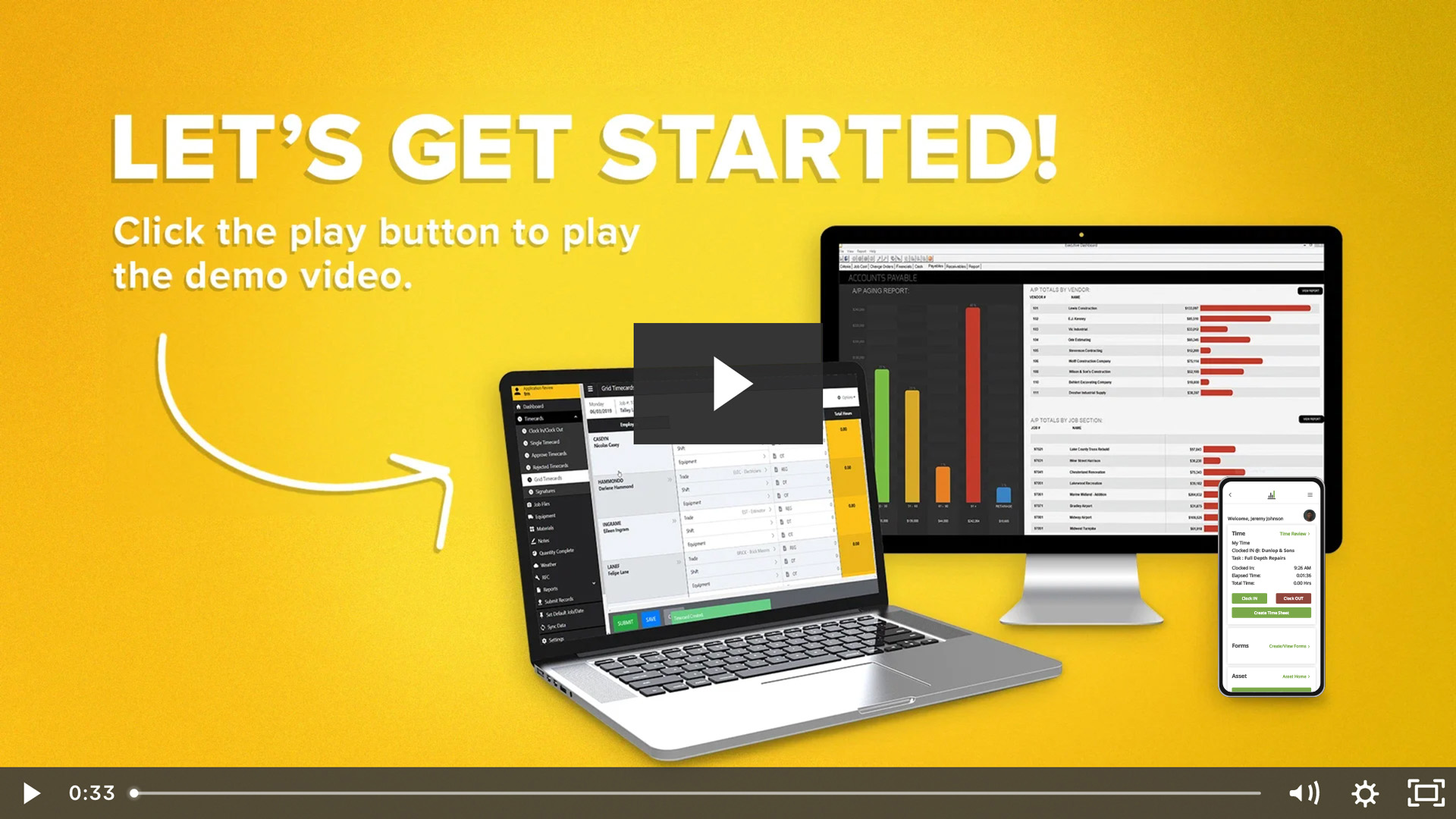
Budgets serve as a guide to help contractors maximize profitability and reach their financial goals while completing their construction projects.
While contractors have various budgeting methods, construction accounting software stands out as a highly effective tool.
Construction accounting software simplifies budgeting by:
- Accurately tracking costs
- Giving detailed expense breakdowns
- Providing accurate, detailed reports at each step of the project
- Forecasting costs and profitability
Construction accounting software gives contractors the tools to make better financial decisions.
Contractors who implement and fully utilize construction accounting software can maximize profitability.
Key Takeaways About Accounting Software For The Construction Industry
- Construction accounting software easily tracks costs and expenses so contractors can make informed decisions.
- Construction companies can leverage construction accounting software to create financial reports to dive deep into their labor costs to ensure they are always meeting their budgets.
- Tracking project phases and forecasting profitability is made easier with construction accounting software.
- Construction businesses should look for construction accounting software that integrates with other software like project management software, construction estimating software, and construction payroll software to improve their profitability.
Budgeting With Construction Accounting Software
Here’s a breakdown of how construction accounting software can help improve budgeting:
1. Simplified Cost and Expense Tracking
Construction accounting software streamlines the process of tracking costs by categorizing expenses and linking them directly to specific projects or tasks, allowing contractors to easily monitor:
- Direct Costs, such as material costs, labor, and subcontractor expenses
- Indirect Costs, such as overhead costs like utilities and administrative expenses
With construction accounting software, you can use detailed cost codes to identify exactly where money is being spent and change course to remain within your budget.
2. Comprehensive Financial Reporting
A construction accounting solution should offer industry-specific reporting capabilities to give contractors a better understanding of how their operations affect their budget on a given project.
Some construction accounting software solutions provide several types of reports, such as:
A. Income Statements
An income statement, also known as a profit and loss (P&L) statement, reports a construction business’s profit or losses over a specific period.
If income exceeds expenses, the contractor is profiting, and if the opposite is true, they’re operating at a loss.
There are limitations to income statements, but they can give contractors a good 30,000-foot financial overview of their operations to see if there are any glaring issues they should address or budget for in the future.
B. Cash Flow Statements
Cash flow statements give contractors the ability to precisely measure where and when:
- They receive funds
- They are redirecting funds elsewhere
Contractors can leverage these financial statements to easily determine if they are remaining within their budget and maximizing their profitability at any given time.
C. Work-in-Progress (WIP) Reports
WIP reports help contractors manage their cash flow and budget by predicting future revenue streams.
WIP reports measure potential future revenue against anticipated expenses based on the current state of their ongoing projects.
This allows contractors to ensure they have sufficient funds to meet their project’s budget and needs.
D. Job Costing Reports
Job cost reports break down costs related to:
- Labor
- Materials
- Equipment usage
- Subcontractor expenses
Modern construction accounting platforms generate these reports automatically, saving time and reducing errors.
With the right accounting software for contractors, users can simplify job costing by automatically calculating these costs against their budget to help them avoid cost overruns and determine profitability in real time.
3. Project Tracking and Forecasting
Advanced construction accounting software allows for detailed project tracking and forecasting.
This involves tracking project phases to monitor costs during the various project steps to ensure you always remain within budget.
Additionally, you can forecast future costs by analyzing your current spending patterns and project progress.
Many construction accounting systems also offer financial management tools like automated reminders for overdue payments and electronic payment processing.
Accounting software for construction gives you the ability to analyze data from past projects and compare them with your current trends to accurately forecast your spending and remain within budget. This can help you reduce human errors and improve your financial processes.
4. Precise, Simple Billing
Construction accounting software simplifies billing by automating tracking and invoicing to improve accuracy and avoid delays. Contractors can quickly identify outstanding payments and rectify them to improve cash flow and budgeting.
5. Integration Capabilities
One of the key features of construction accounting software is that it integrates with project management tools, estimating software, and construction payroll software to help contractors more effectively manage their budgets.
These integrations ensure that accurate data flows seamlessly between each software, giving contractors real-time insights to make the best budgeting decisions.
Selecting a Construction Accounting Software Improves Budgeting
Before deciding on a construction accounting software, you should research its features and integration capabilities and schedule demonstrations to see it in action.
It’s also important that the construction accounting software you choose has the ability to support your needs.
The benefits of construction accounting software can help you with more accurate job costing, and give you more financial control so your construction jobs can stay within budget.
FOUNDATION®, for example, is industry-leading construction accounting software that offers:
- Construction reports
- Integrations with construction project management, payroll, and estimating software
- The ability to effectively track, forecast, and project costs and compare them to your budget in real time
- Automated billing and invoicing to ensure you’re paid accurately and on time.
FOUNDATION's construction accounting software excels in providing detailed job costing analysis, customizable reporting tools, and seamless integration with other construction management modules
With each of these features, you can more effectively manage your budget and maximize your profitability.
Chat with a specialist today to learn more about FOUNDATION.
Share Article
Keep on current news in the construction industry. Subscribe to free eNews!
Our Top 3 YouTube Videos
Learn about our software more in depth with product overviews, demos, and much more!
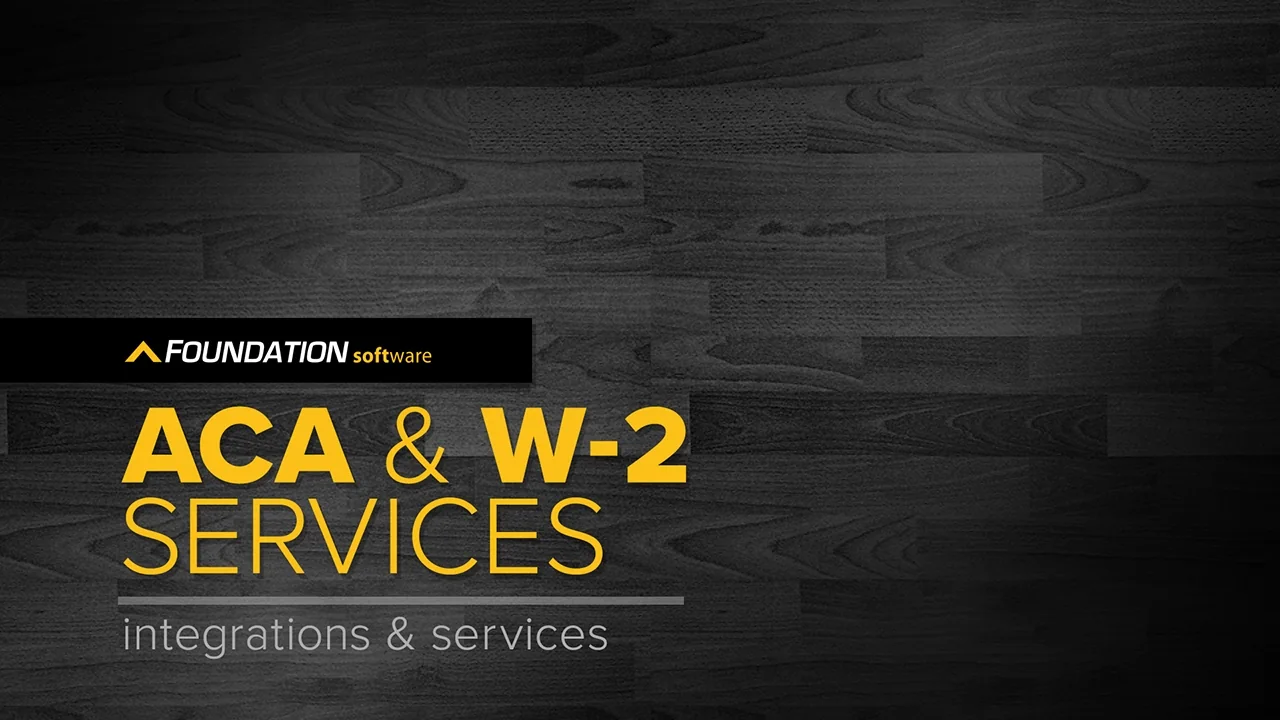
Our ACA reporting & e-filing services include official 1094-C and 1095-C IRS reporting, optional e-filing (no applying for a TCC code required), mailing to your employees and experienced support to help you.

There are plenty of reasons to make FOUNDATION your choice for job cost accounting and construction management software — just ask our clients!
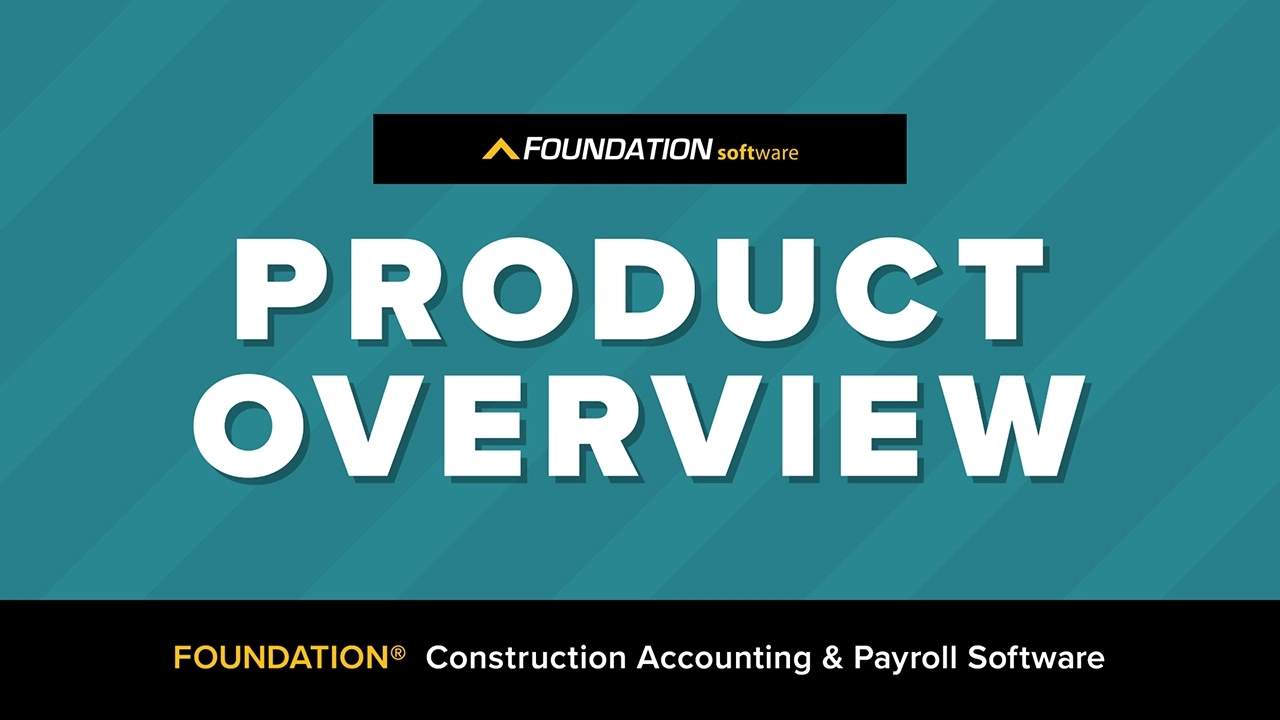
From job cost accounting software, to construction-specific payroll. Get an overview on your next all-in-one back-office solution.

